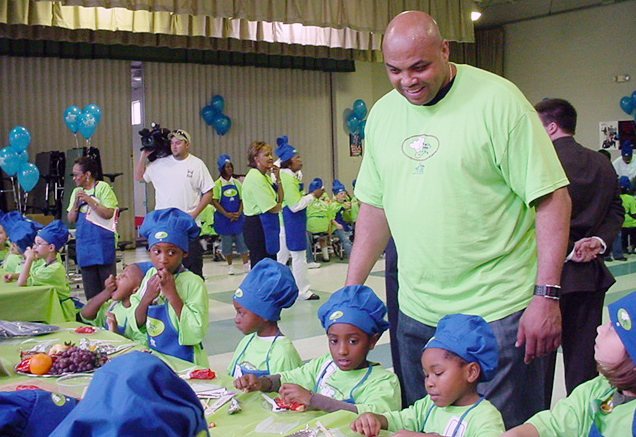 Another fixture in the excitement of the season’s waning moments is the colorful TV commentary of Charles Barkley, former 11-time NBA All Star and current superstar of searing hoops insight.
Another fixture in the excitement of the season’s waning moments is the colorful TV commentary of Charles Barkley, former 11-time NBA All Star and current superstar of searing hoops insight.As the tournament intensifies, though, Barkley has a tendency to lose something — not his wit, but his delivery. His voice cracks and grows hoarse. The bullhorn becomes a bullfrog and weakens to a near whisper. Viewers have to lean in to hear classic phrases like “They’re gonna beat them like they stole something.”
With all the world watching, and World Voice Day right around the corner, Richard McHugh, M.D., Ph.D., a voice specialist and assistant professor of Otolaryngology at the University of Alabama at Birmingham School of Medicine broke down film of Sir Charles, a Birmingham-area native and longtime supporter of UAB’s Minority Health and Health Disparities Research Center.
Losing one’s voice is a common condition that can cause problems including vocal fold polyp or hemorrhage, McHugh said. The voice is a product of delicate muscles and tissue; straining those muscles shuts down the voice like a full-court press.
“Voice abuse, or phonotrauma, can certainly occur with yelling, especially at sporting events to be heard over everybody else who’s yelling too,” McHugh said.
To produce our voice, the lungs power breath through v-shaped folds to create vibration.
“In order to yell, we produce extra power from our lungs and tighten up on our vocal folds to harness that air power,” McHugh said. “Often we recruit neck muscles typically used for swallowing to try and keep those folds together. This can lead to recurring voice problems including a rough and raspy quality.”
Dehydration, which is worsened by having drinking alcohol or caffeinated beverages, can strain a voice. Dry winter air is another culprit. Staying out too late, not getting enough rest and working too hard can create general fatigue, which also contributes to a froggy voice. Add allergies, acid reflux and a chronic cough or clearing of the throat to the list, too, McHugh says.
Professional speakers and classical vocalists know how to produce a louder voice without straining, but it takes years of training, McHugh says.
For the vocalized majority, McHugh recommends preventive measures:
- Stay hydrated; drink two to four times as much water as alcohol or caffeine, and maybe use a humidifier in your bedroom at night
- Avoid yelling and straining your voice as much as possible
- Get plenty of rest
- Practice functional voice rest; do not talk unnecessarily, and keep your voice to a normal tone
- Avoid menthol cough drops or throat lozenges; the “cooling” feeling in your throat is the evaporation of alcohol, leading to more dryness and irritation
- Use fruit- or glycerin-based non-mentholated cough drops or candies, such as Halls Breezers and Grether’s Pastilles
- If you feel a tickle in your throat, use an expectorant product such as plain Mucinex; but avoid products with added ingredients such as Sudafed (decongestant)
- Warm tea with honey soothes without drying your throat; a warm compress helps some people
- Stay hydrated
Aside from being (more) difficult to understand, a hoarse voice like that of Sir Charles during March Madness does not usually create serious medical problems. “It usually resolves in one to two weeks,” McHugh says. “If your voice just isn’t getting back to normal after that, it’s probably best to see your doctor.”
For Barkley, that leaves plenty of time to recover in time for the NBA playoffs.